Welcome To
Seattle Brickmaster
Seattle's #1 Masonry Company helping you achieve
Your Dream Home, Built to Last

About Seattle Brickmaster
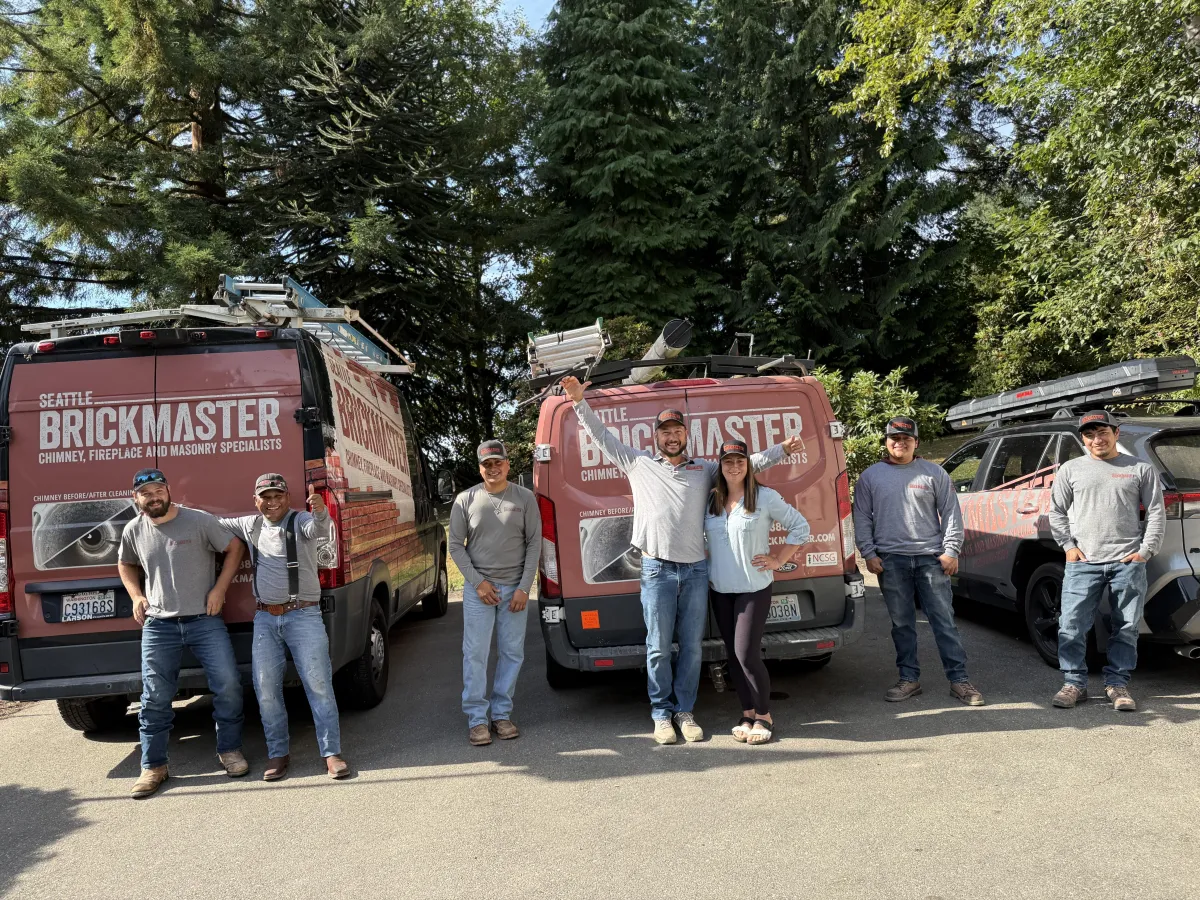
Seattle Brickmaster is more than just a family-owned masonry company—it's a legacy passed from father to son. Now in its second generation, our business is built on a deep commitment to craftsmanship, integrity, and serving our community. Michal Radka (pronounced Me-how), the head of procedures, is fully devoted to imparting his extensive knowledge and expertise. He holds memberships with the NCSG, is a CSIA-certified chimney sweep, and a certified Rumford fireplace installer, among other qualifications. Inspired by his father, Michal's passion for quality and attention to fine details drives every project we undertake.
His wife and business partner, Ioana, ensures exceptional customer service and maintains all safety procedures, certifications, and insurance to safeguard our clients and staff. Our skilled team excels in all facets of masonry work, from chimney repairs and fireplace renovations to bespoke brickwork, outdoor kitchens, fire pits, and tuck-pointing. Our clients often say, “You make the impossible possible,” no matter the complexity of the job, and we do so with a smile. We invite you to experience our dedication and passion in your next masonry project.
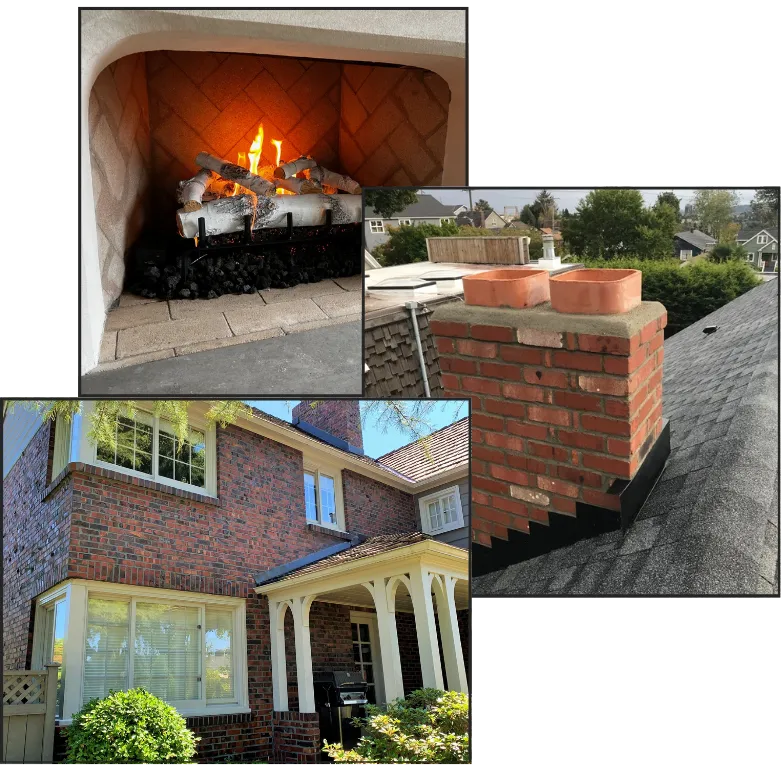
Designers at Heart | Quality Driven | Experts | Customer Oriented
Chimney, Fireplace, & Masonry Specialists
Seattle Brickmaster has transformed Greater Seattle Area homes since 1983. We get how overwhelming repairs can feel, and our expertise in chimney repair, fireplace restoration and masonry services delivers solutions that last. With over 40 years of trust, Seattle Brickmaster turns your vision into reality.
We Are…
Designers at Heart
Not just masons with a trowel. Our team has a background in landscape design, engineering, arboriculture and business management. We take your ideas and make them realities no matter the complexity, or simplicity, of the project.
Quality Driven
Quality is most commonly gauged by how a product compares to others of the same. As we aspire on a daily basis to use only the best methods and materials in the industry - we are raising the bar. We come from a line of true European craftsman.
Experts
From masons to designers we cover the board with extensive knowledge and experience in the field, as well as in the classroom. Continuing education is part of our intensive regime. M. ENG, AA in BA, ISA and CSIA are just a few of our many degrees and certifications.
Customer Oriented
Our motto here is, "do for others as you would like them to do for you." We thank God for every job that is given to us by our clients, and in turn, provide them with THEIR dreams and ideas realized to the best of our ability. Nothing less is acceptable.
Chimney, Fireplace And Masonry Specialists
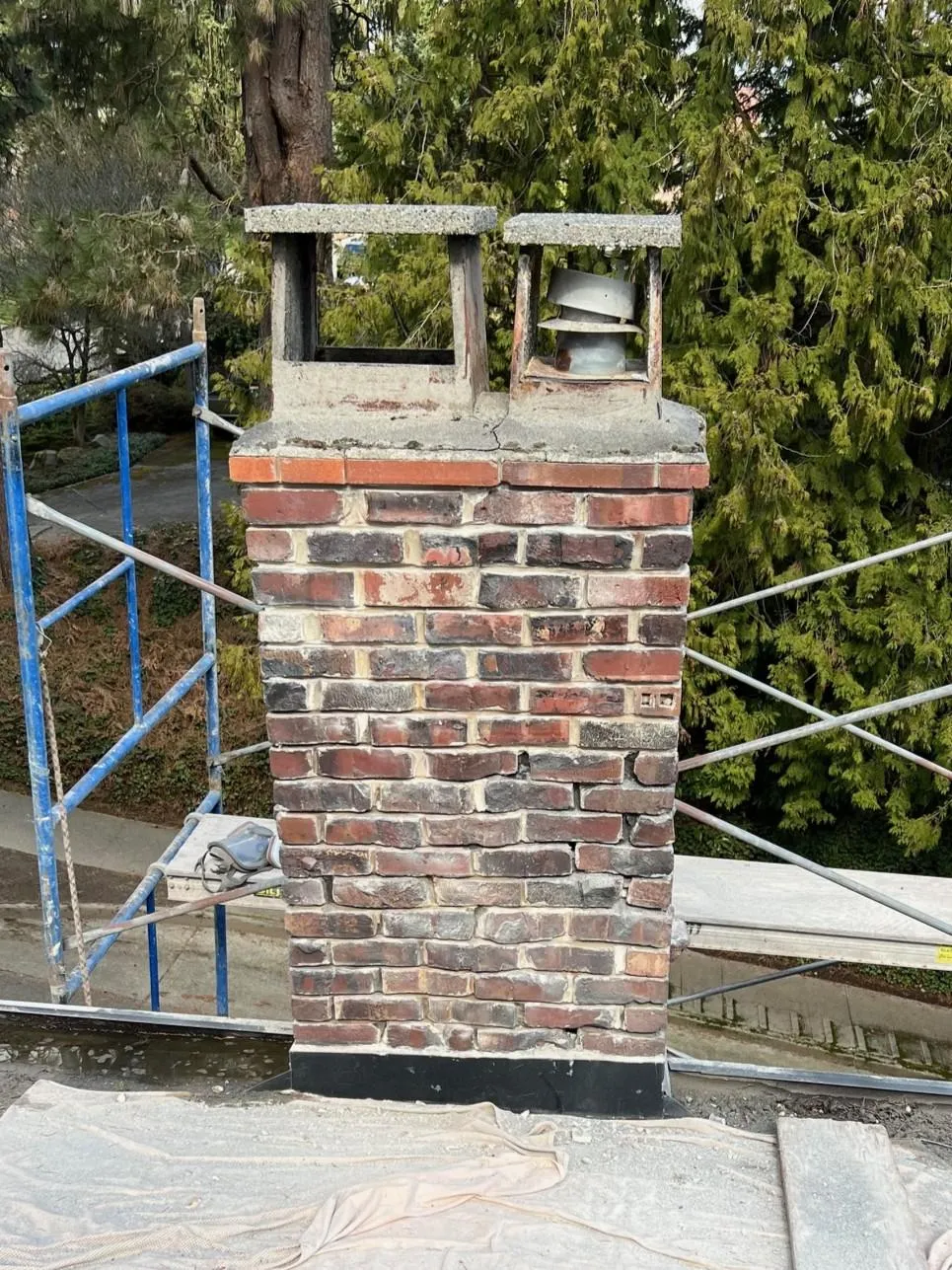
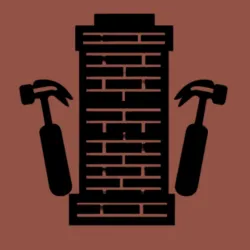
Chimney Repair
Restore your chimney’s safety and style with Seattle Brickmaster’s expert chimney repair. Our durable masonry solutions, crafted with precision in the Greater Seattle Area, ensure lasting performance and a timeless look for your home.
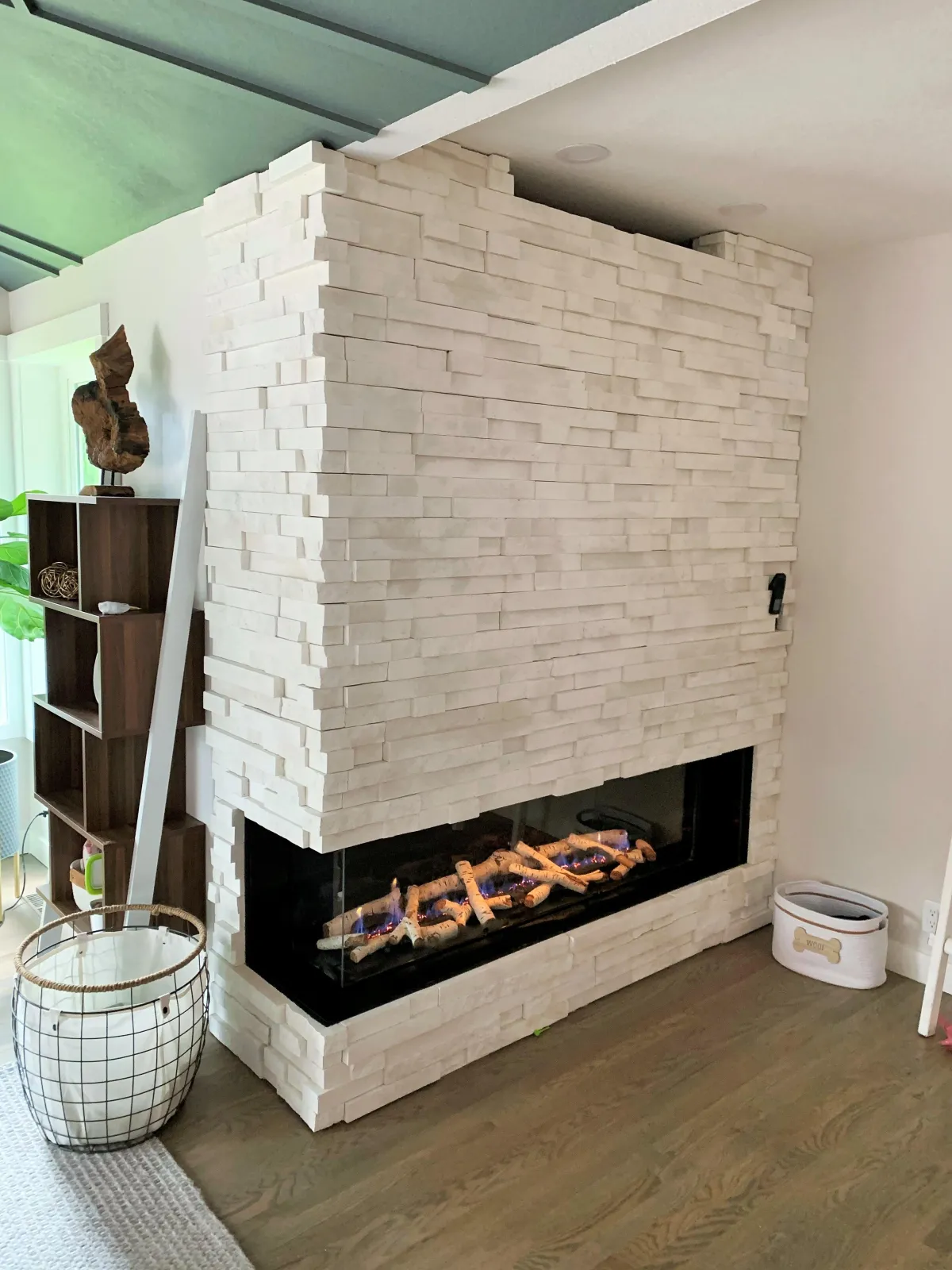
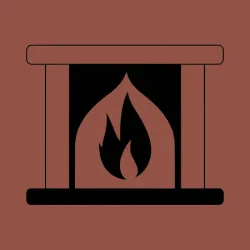
Fireplace Installation
Elevate your home’s warmth and charm with our expert fireplace installation services. From sleek modern designs to timeless stone finishes, Seattle Brickmaster delivers custom fireplaces that enhance any Greater Seattle Area homes.
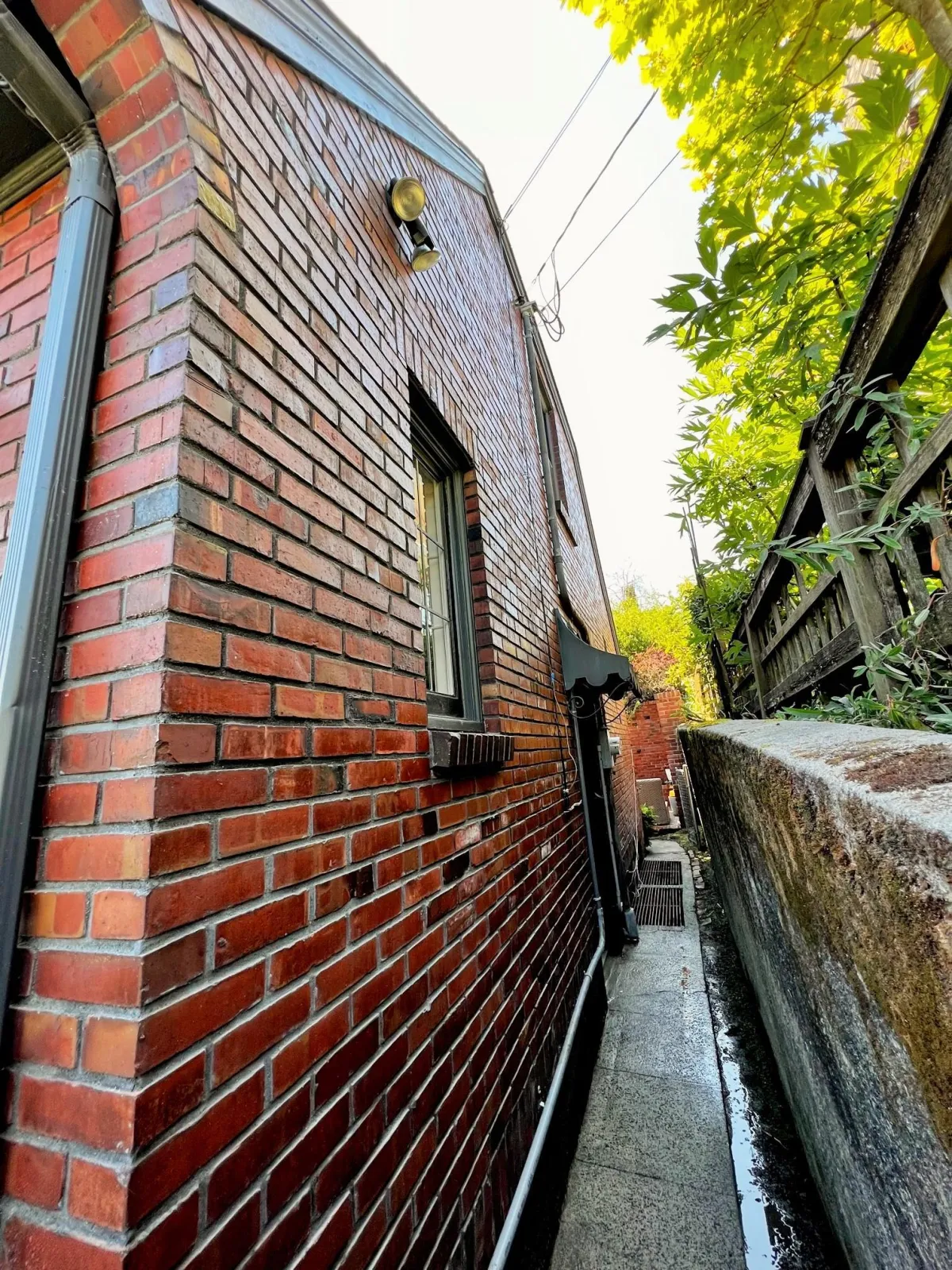
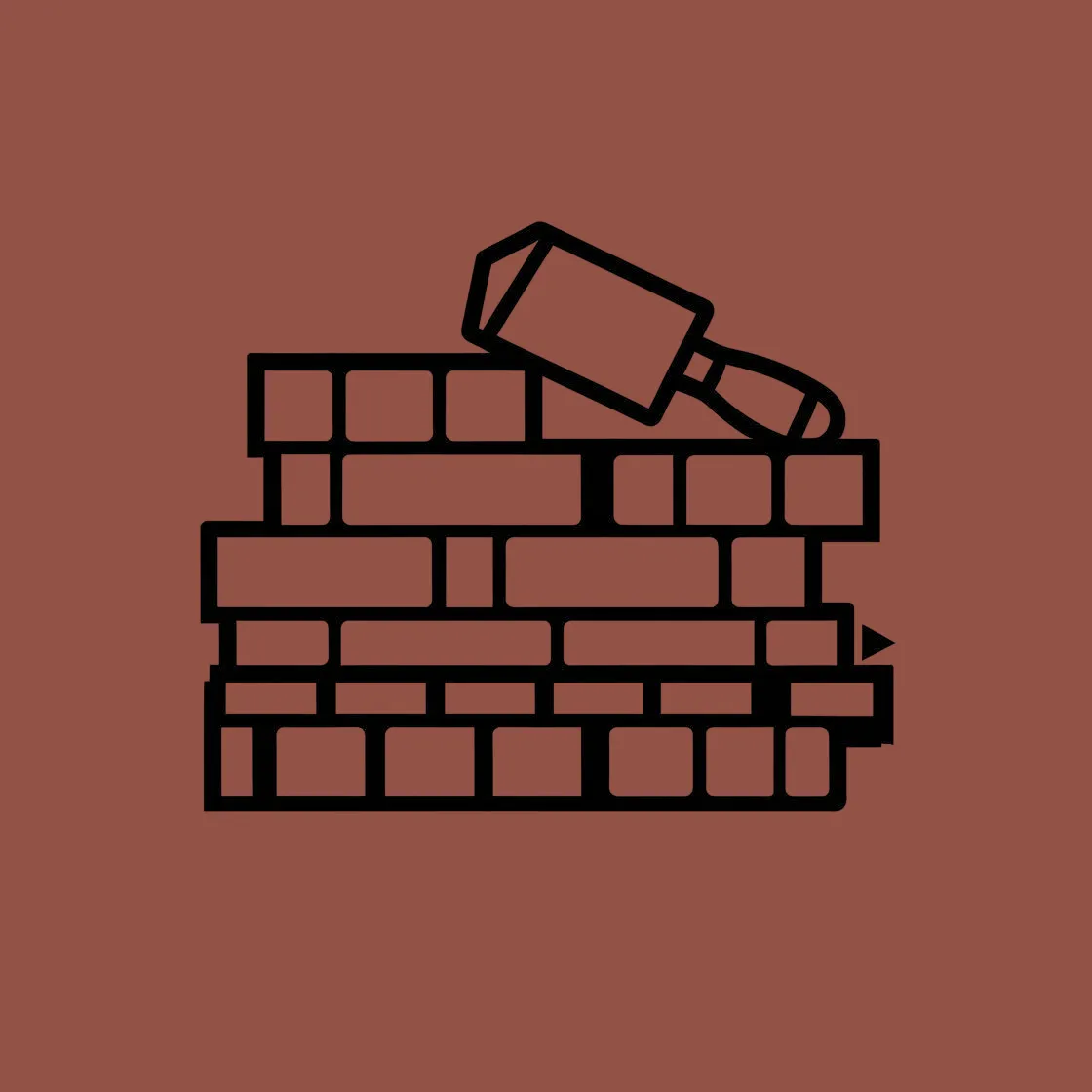
Masonry Services
Seattle Brickmaster delivers top-tier masonry services, specializing in chimney repair, tuck pointing, fireplace build/restoration, Concrete Work, Retaining Walls, Outdoor Kitchens and Paths and patios. Serving the Greater Seattle Area since 1983
Quality Craftsmanship, Lasting Durability, Seattle Brickmaster
Three Easy Steps To Your Dream Home
Imagine cozy nights by a restored fireplace, a stone patio perfect for BBQs, or your yard, perfectly manicured. Seattle Brickmaster delivers this with expert chimney repair, fireplace restoration, and more. But ignoring damage invites thousands in repairs, fire hazards, or a crumbling home. Don’t wait—call 425-882-3388 or visit our gallery to get inspired!
Call 425-882-3388 for a free quote. Or email us here.
Receive The Best Masonry Services In Greater Seattle Area
Enjoy a safe, beautiful home built to last.
TESTIMONIALS
Here is what our clients have to say, Take their word for it – not ours

"Fine work, high attention to detail"
"Seattle Brickmaster installed a wood burning fireplace at my house and it turned out great in exactly the timeline they gave me. Fine work, high attention to detail, great explanation of the process and different options I had. Priced very competitive, would recommend to anyone seriously considering any type of fireplace work. Professionals, period.."
- Drew Prokash


"All the work was accomplished on time, cleanup was spotless and all for the price quoted"
"Shout out to Michal Radka and his crew at Seattle Brickmaster. We needed a chimney rebuild and couldn't be happier with the work they did. Once we talked further with him and expressed our plan to install a gas insert after the chimney was completed, Michal educated us on what model would best serve our needs, ordered and installed it. All the work was accomplished on time, cleanup was spotless and all for the price quoted. Michal is also a certified chimney sweep. Highly recommend this business."
- Pat Cook


"All of the work performed turned out looking perfect"
"I simply could not be happier with the whole process. They worked every day until the job was completed. They cleaned up the job site , there wasn’t even mortar or brick dust on the ground. How did they do that? All of the work performed turned out looking perfect. I was thirty years in the construction business , these folk are top notch!"
- Torvig Johnson

Meet Our Masonry Experts
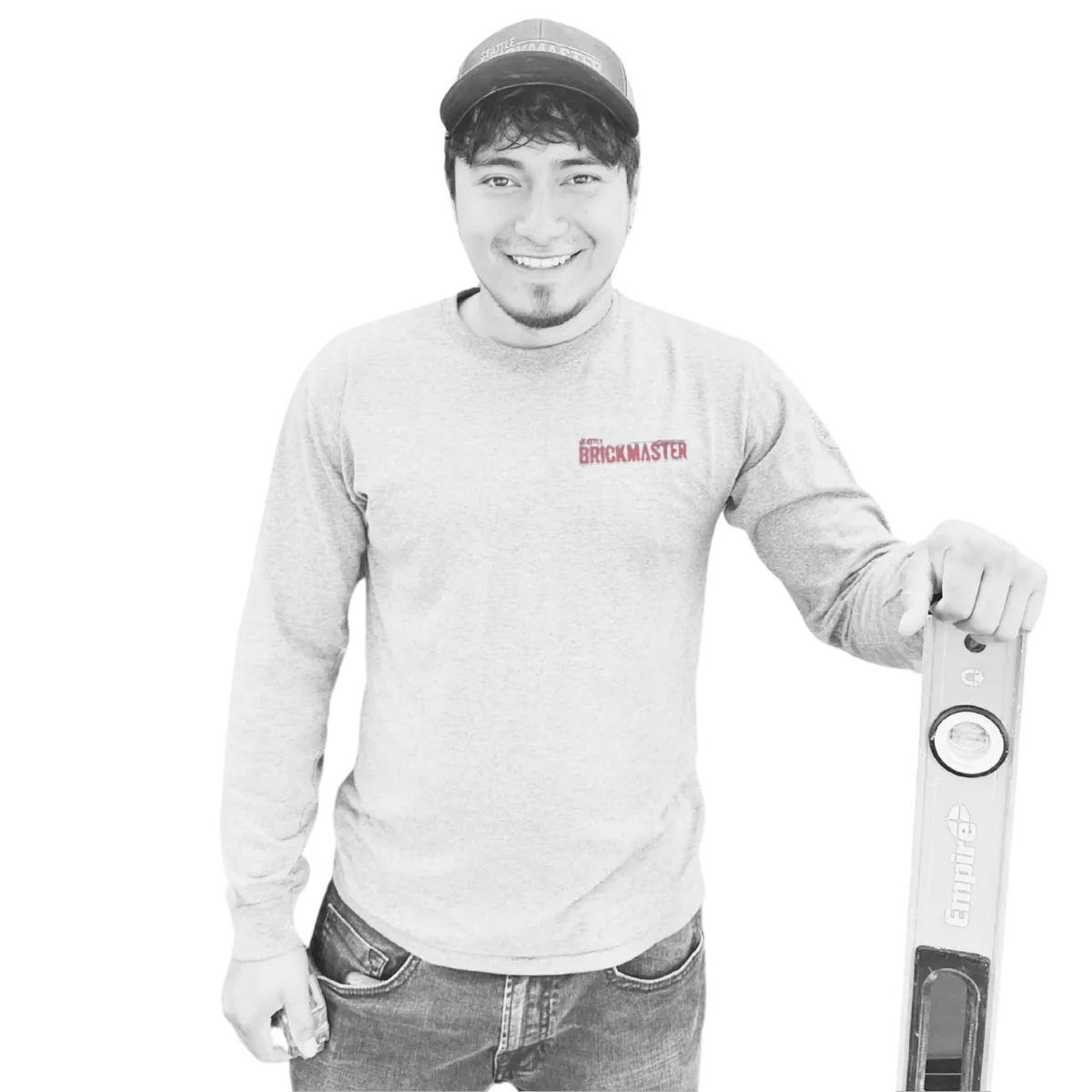
Stevie
Junior Mason

Alonso
Fireplace Technician

Ever
HOD Carrier
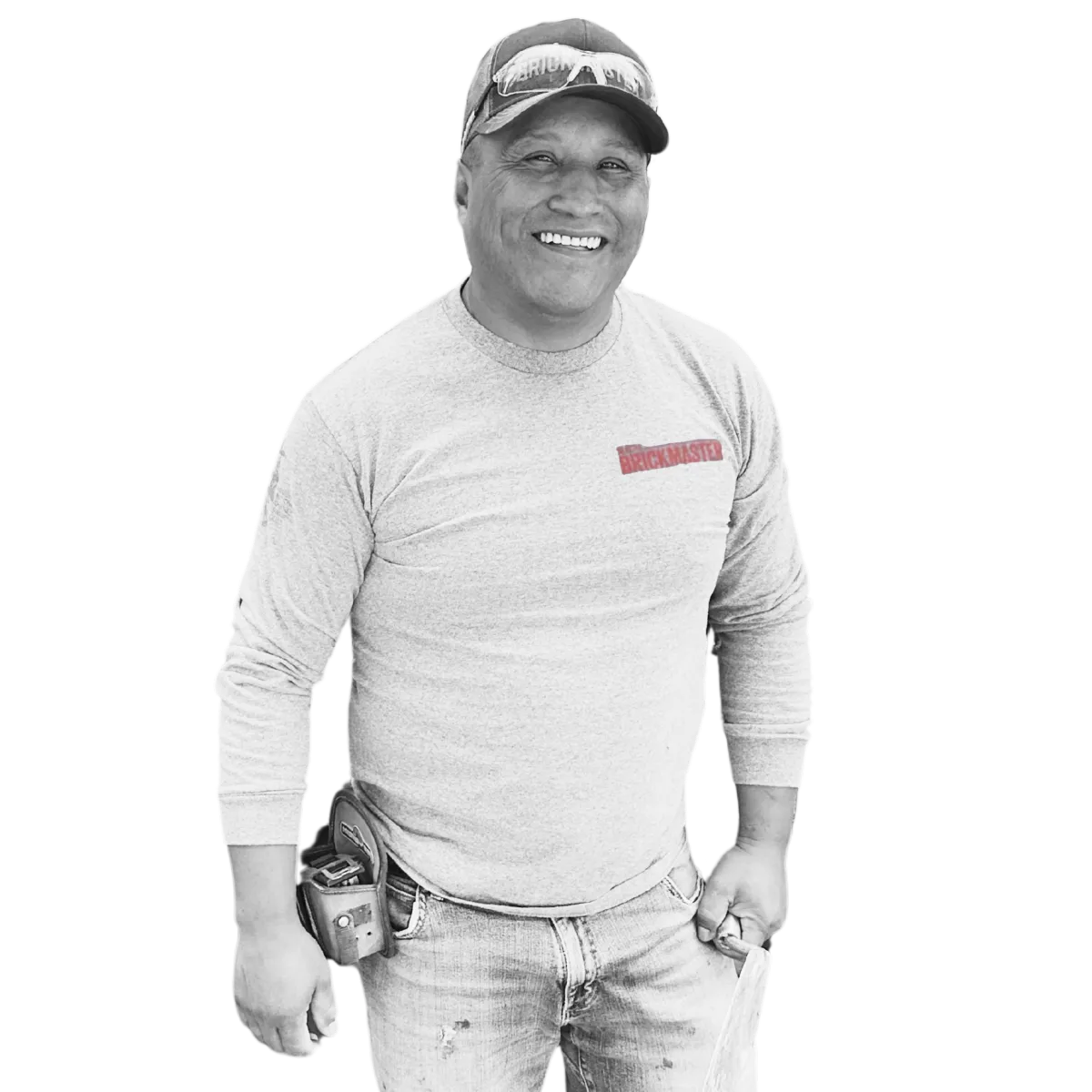
Antelmo
Master Mason
Transform Your Space
Elevate Your Life
Build a Home You Love
Every great masonry transformation begins with a single step. Enhance your home with expert mason services in the greater Seattle area that bring beauty, security, and warmth. Trust our team to turn your vision into reality — because you deserve the best and you deserve to fall in love with your home!
READY TO GIVE US A TRY?
Get A Quote Free Today!
High quality masonry work in greater Seattle area is always in season.
See what Seattle Brickmaster can do for you.
STILL NOT SURE?
Frequently Asked Questions
Have more questions? Contact Seattle Brickmaster at 425-882-3388 or visit our contact page to keep your home safe and stunning!
What is better — a concrete driveway or an asphalt one?
These are two completely different surfaces. There are many things to consider before choosing your option. Cost is the most common. Although the initial cost of a concrete driveway is more, a good quality concrete driveway can last over 30 years with little or no maintenance. Conversely, asphalt deteriorates more quickly as it is more directly affected by environmental factors and needs period crack repair and sealing. In the long run the cost will be equivalent in most cases. Concrete is our choice.
What if the driveway cracks once it is finished?
If your concrete was jointed properly, visible cracks are unlikely to happen. Think of joints as “planned” cracks that allow the concrete to expand and contract, minimizing any chance for random cracking. If you’re concerned about cracking, contact us and one of our specialists will explain in detail the process we take and how we prevent them.
Do I need a permit to build a retaining wall?
You only need a permit if your retaining wall is over 4 ft. tall. A great way to deal with large hanges in elevation is to create terraces. This does not mean you need to step back far before building the next level retaining wall, but a nice area for planting is always recommended. This will add vertical and horizontal dimension adding character to your outdoor living space. We recommend you visit our retaining wall page for idea.
Do pavers need to be mortared into place?
No, mortar is not needed to install paver paths or patios. A proper base is the most critical element for any sand-set paver installation and should not be overlooked. It is also recommended that you use joint or paver sand as the final step. This sand is swept into the joints and compacted to achieve the proper installation and eliminate movement. Pavers and natural stone are our specialties; don’t hesitate to see what it can look like!
What is that white residue on my brick?
The white residue that sometimes is seen on bricks is a condition called efflorescence. is when the calcium is released from the brick or the mortar joint due to moisture trapped within. It can be removed with a masonry cleaner and a wire brush but don’t wait too long as it can calcify and ooh it can be hard to remove!
Why won't my chimney draft properly?
There are several factors that may affect chimney “draft ability”. These include improper installation, incorrect flue size and negative air pressure; external factors such as roof design, nearby trees, wind patterns and the location of your home can also play a role. Because there can be so many variations it is recommended you meet with a CSIA certified sweep that can evaluate your situation. Feel free to contact us for a free evaluation and estimate.
How often do I need to clean my chimney?
According to NFPA (National Fire Protection Association) and CSIA (Chimney Safety Institute of America) chimneys should be cleaned and inspected annually. Lucky for you Seattle Brickmaster is one of only two companies in the Greater Seattle area with a certified chimney inspector on staff!
How do I know my home or chimney needs tuck pointing?
Look closely at the masonry surface. If you notice voids, cracks, crumbling mortar or uneven areas, chances are you need tuck pointing. This restoration is typically needed after 20-30 years of exposure to the elements. People are often told they need to rebuild but don’t be fooled! Tuck pointing is an approved method for centuries and can restore most masonry surfaces. Contact us so we can come and see if tuck pointing can be done, free of charge.
Why is my brick crumbling or flaking?
As bricks age they will start to retain moisture. When moisture penetrates the outer layer of brick (substrate) and freezes, it will expand. This expansion is what causes the brick surface to “pop”, or spall. It is a very common problem when a masonry surface is exposed to the elements for a long period of time. It is extremely important to address this before it is too late and you are stuck with the expense of replacing the structure. If you notice bricks that are spalled, contact someone immediately.
Can my existing mortar color be matched?
The existing mortar color and profile can be matched through careful manipulation of color additives. KEEP IN MIND – Newly applied mortar will appear sharper in color because it hasn’t had a chance to weather and oxidize.
Do you charge for estimates?
Our estimates are FREE. Unless you are located greatly outside our area of service we charge a modest and standard travel fee. Don’t hesitate to contact us to discuss your project. We love to give advice and help as much as we can.

Our pledge to excellence is evident throughout, both in the office and in the field, which is why most of our projects come directly from past clients, referrals and other fellow industry leaders. We are eager to make our mark on the city as Seattleites, one project at a time no matter how big or small it might be. We want to be remembered in our community for the love and passion we have for what we do.
Quick Links
Resources
© Seattle Brickmaster. 2026. All Rights Reserved.